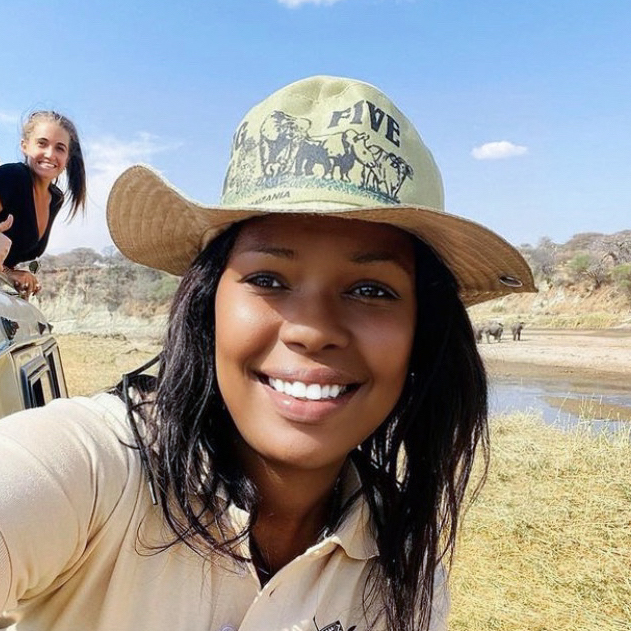Tanzania Travel Information
Credit cards are only accepted by the major airline companies and by most of the bigger hotels and lodges. Do not rely on credit cards as a source of cash while in Tanzania. In some cases, a surcharge will be added to credit card payments.
We suggest that you take sufficient cash and use the credit card as a back-up only. Travelers checks are accepted at most banks and some hotels, however a surcharge normally apply to exchange travelers checks into cash. Please note many shops / hotels don’t accept traveler’s chec
There are two seasons of rain in Tanzania: the long rainy period (monsoon) which runs from late March until June and a short rainy period, which runs from November until mid-January. The long rains fall in heavy downpours, often accompanied by violent storms. The short rains tend to be much less severe.
A viral infection transmitted by a day-time biting mosquito (Aëdes aegypti) typically found in urban, suburban, and rural areas. Only travelers coming from a country with risk of Yellow Fever transmission will require a Yellow Fever vaccination certificate.
If travelling through any of the following countries, will you need a vaccination card:
AFRICA – Angola, Benin, Burkina Faso, Burundi, Cameroon, Central African Republic, Chad, Republic of the Congo, Democratic Republic of the Congo, Côte d’Ivoire, Equatorial Guinea, Ethiopia, Gabon, Gambia, Ghana, Guinea, Guinea-Bissau, Kenya, Liberia, Mali, Mauritania, Niger, Nigeria, Rwanda, Senegal, Sierra Leone, South Sudan, Sudan, Togo, Uganda.
AMERICAS – Argentina, Bolivia, Brazil, Colombia, Ecuador, French Guiana, Guyana, Panama, Paraguay, Peru, Suriname, Trinidad and Tobago, Venezuela.
Tanzania is considered a low risk area for Yellow Fever. If you are coming to Tanzania without a vaccination card, make sure you take precaution against mosquito bites.
Travelers travelling from Tanzania to South Africa are required to have a Yellow Fever vaccination certificate upon entry to South Africa.
Please recheck regulations before travelling, as the above is subject to change without notice.
An onward ticket and sufficient funds are required when entering Tanzania. Tanzanian people are friendly and will always offer a helping hand.
It is strongly advised to take out travel insurance which should cover baggage as well as personal accident and medical insurance and specifically covering your Kilimanjaro expedition.
The official languages are Ki-Swahili and English. There are more than 120 tribal vernaculars.
Mainly Christian, Muslim and Traditional beliefs. Please keep in mind that you are entering a different country with strong religious customs.
As with any other town, walking alone at night is not advisable, and it is preferable to use taxis which are available at most hotels. Do not leave cash or valuables in your hotel room and use a safe deposit box.
Make use of a safe deposit box to keep your belongings safe, and do not leave anything of value lying around in your hotel room.
The Tanzanian Shilling is the local currency, but travelers checks and cash in US$ are recommended. The current exchange rate is approximately Tsh 2100 = US$ 1. It is possible to change foreign currency at any Bureau de Chance, which generally gives better rates than hotels and most banks.
If you bring US $ cash or receive US $, please make sure the bank notes are in good condition with no cuts or damage and that the bank notes are not older than 2008.
The following items may be imported into Tanzania, by travelers older than 18 years, duty free:
Tanzania has a moderate risk for Malaria. Malaria occurs in all areas below 1800 meters and we recommend that you take precautions against malaria prior to the commencement of your holiday. Please consult your doctor about these. Woman using oral contraceptives should consult their physicians before using prophylactics.
If planning to use Diamox on your Kilimanjaro hike, please consult your doctor as some malaria prophylactics cannot be used in conjunction with Diamox.
The best way to prevent contracting Malaria is to try and avoid mosquito bites by using an effect insect repellent, by sleeping under mosquito nets and to wear proper clothing after sunset. Adequate precautions must also be taken to avoid yourself being bitten by a mosquito.
Kindly contact your closest Travel Clinic or medical practitioner.
As a sensible precaution we recommend that you consider getting at least some of the following recommended immunisations:
Please check with your local travel clinic for the latest recommendations.
Visas are required by most visitors to Tanzania. Visas are available at your local Tanzanian Embassy. Costs vary from country to country. Visas are valid for 3 months. It is possible, however, to obtain a tourist’s visa for a single entry at any ONE of the FOUR MAIN ENTRIES into Tanzania -subject to the fulfilment of all immigration and health requirements-, for those who could NOT apply for visa from Tanzania Mission abroad.
Payment, at all these points, is in US Dollars or its equivalent in Sterling. For all other entry points in Tanzania, visitors must hold valid visa prior to approaching those entry points in Tanzania. However, in order to avoid unnecessary delays, those who proceed to Tanzania from a country where there IS a Tanzania Diplomatic Mission or Consular Office are strongly advised to obtain their entry visa prior to departure to Tanzania.

